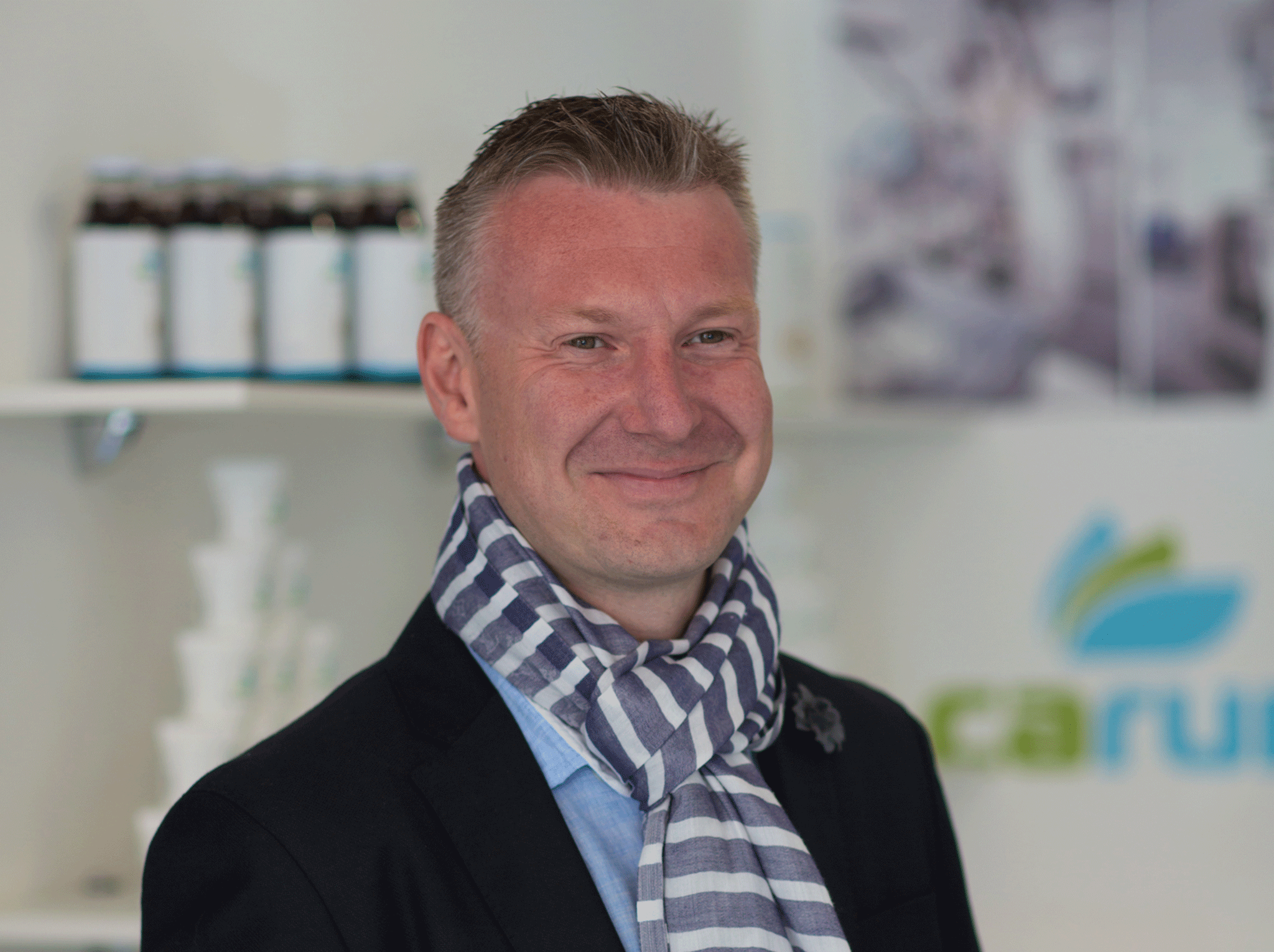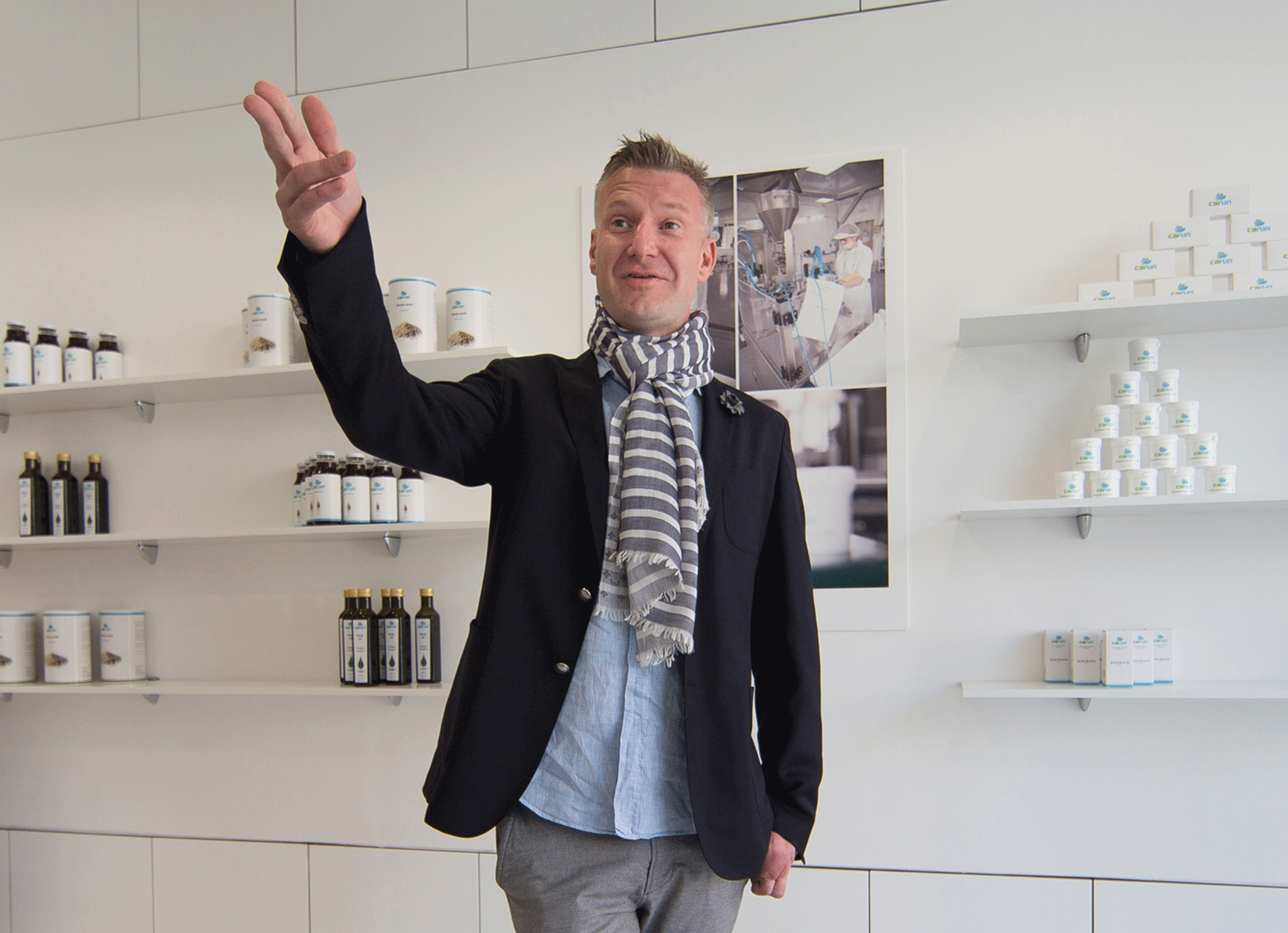The Independent's journalism is supported by our readers. When you purchase through links on our site, we may earn commission.
Entrepreneur who suffered a horrific accident is now spreading the word about ‘life-changing’ cannabis oil
Carun UK’s products are based around cannabidiol – a compound found naturally in the cannabis plant that is claimed to have a range of therapeutic effects

Your support helps us to tell the story
From reproductive rights to climate change to Big Tech, The Independent is on the ground when the story is developing. Whether it's investigating the financials of Elon Musk's pro-Trump PAC or producing our latest documentary, 'The A Word', which shines a light on the American women fighting for reproductive rights, we know how important it is to parse out the facts from the messaging.
At such a critical moment in US history, we need reporters on the ground. Your donation allows us to keep sending journalists to speak to both sides of the story.
The Independent is trusted by Americans across the entire political spectrum. And unlike many other quality news outlets, we choose not to lock Americans out of our reporting and analysis with paywalls. We believe quality journalism should be available to everyone, paid for by those who can afford it.
Your support makes all the difference.It was a life-changing moment that caused Michal Takac to start his business. A decade ago, he lost three fingers after they were crushed in an industrial printing press, resulting in excruciating pain – and scars.
Doctors prescribed him countless drugs and medicated creams but he found little relief. Eventually he sought his own solutions. It was then that he discovered the remarkable healing powers of cannabidiol (CBD), a natural, legal and non-psychoactive cannabis extract. It is one of hundreds of compounds known as cannabinoids found within the hemp plant.
He applied hemp ointment made with CBD to his wounds and rapidly felt the positive effects – scar tissue began to heal, inflammation subsided and pain was reduced.
The entrepreneur was so impressed that he contacted the supplier, Carun, which is based in Takac’s native Czech Republic. Then he snapped up exclusive rights to sell the company’s products in the UK and Ireland.
He now distributes a range of 18 products, including CBD oil and a host of skin creams and ointments containing the substance, online and through independent chemists and health food shops.
Most are targeted at conditions such as acne, rosacea, psoriasis, eczema, sores and venous ulcers, as well as grazes, burns, scars and insect bites, but the range of health benefits of CBD is potentially much wider.
Scientific evidence backing the extraordinary range of applications is plentiful and growing. Apart from its painkilling properties, CBD is also known to have strong protective effects on the brain.
It has been found to be an effective anti-psychotic, a muscle relaxant, an antioxidant and – in high enough doses – a sedative. It has also been used to treat the symptoms of severe epilepsy as well as neurodegenerative diseases such as Parkinson’s and Alzheimer’s.
Takac says he believes there is still a stigma attached to cannabinoids because of the association in the public consciousness with illegal recreational cannabis. However, he has found that awareness of CBD is increasing rapidly. He is a passionate evangelist for cannabinoids and wants others to have the revelatory experience he had after his accident.
“I have friends with children who have autism and they have started taking CBD oil,” he says. “After three weeks, it’s amazing when you see a child making eye contact, when they have never done that before.”
More research needs to be done on the effects of CBD on serious conditions such as autism but the extraordinary range of benefits attributable to the compound is clear. This is in part a result of the fact it has been part of human culture for thousands of years, Takac explains.
“Cannabinoids have been found in skeletons from prehistoric times. Hemp has been in our food chain for a long time.”
Scientists have found that the human body has an endocannabinoid system, which produces the chemicals in small amounts for a variety of functions. CBD complements the body’s own natural processes, rather than bombarding them with a foreign chemical. Though science still has much to explore about how this system works, Takac believes it explains CBD’s remarkable properties.
Despite the promising research, there have been almost no large-scale trials on CBD of the kind needed to market it as a medicine.
There is a simple reason for this, Takac says: it is a naturally occurring substance. This means big pharmaceutical companies can’t patent it, so it’s not worth paying for the trials, which can cost millions.
UK regulators have recently thrown up another hurdle for the thousands of people using CBD-based products in the UK. In October last year, the Medical and Health Products Regulatory Agency (MHRA) products containing Cannabidiol (CBD) used for medical purposes as a medicine.

On the face of it, this sounded like a victory: the authorities were recognising for the first time that the substance works. Paradoxically, however, the new classification means Takac can’t make any claims about the efficacy of Carun’s products, obtaining a product licence costing hundreds of thousands of pounds.
This made a lot of people who had experienced great success with CBD fearful that they might not be able to get a hold of it, or even that they may be criminalised for doing so.
But Takac remains undeterred. Though he can’t make specific claims about Carun’s products, he has found that favourable public perception is growing to such a point that more and more people are coming to him each month.
“Our products do work but convincing the population of that is really a question of getting our brand out there. It’s going to be a slow build. You’re not going to see us in Boots.”
“There needs to be public awareness, to educate people, to help them to be able to differentiate between the good products like ours and the hundreds of bad ones out there,” he says.
Carun’s products are made from particularly high-quality plants, which are naturally low in THC (the bit that gets you high), Takac says. The company has also found a technique to remove any potential carcinogens from the hemp they use.
The MHRA says its main aim is not to put an end to the CBD industry but to protect consumers by ensuring safe, consistent, high-quality products.
In a December statement, it said: “MHRA will now work with individual companies and trade bodies in relation to making sure products containing CBD, used for a medical purpose, which can be classified as medicines, satisfy the legal requirements of the Human Medicines Regulations 2012.”
Carun is working closely with the MHRA and has successfully placed its products in independent pharmacies and health food stores, including Planet Organic in the UK. Takac has recently signed a distribution deal in Ireland and is planning further expansion.

Via the cast-iron law of unintended consequences, the Government has helped Takac’s business in one way at least: funding cuts for NHS prescriptions have meant that pharmacies have had to become more reliant on selling non-prescription items to bolster revenues. That has made products like Takac’s more attractive.
Most encouragingly of all for Takac, despite the best efforts of regulators, more and more people appear to be taken by claims made about the benefits of CBD.
“People with serious problems, who had been using steroid creams which the body becomes addicted to and which have other nasty side-effects, started using our products and have had visible results in weeks,” he says.
“Those people are coming back, and that’s what I am most proud of.”
Join our commenting forum
Join thought-provoking conversations, follow other Independent readers and see their replies
Comments